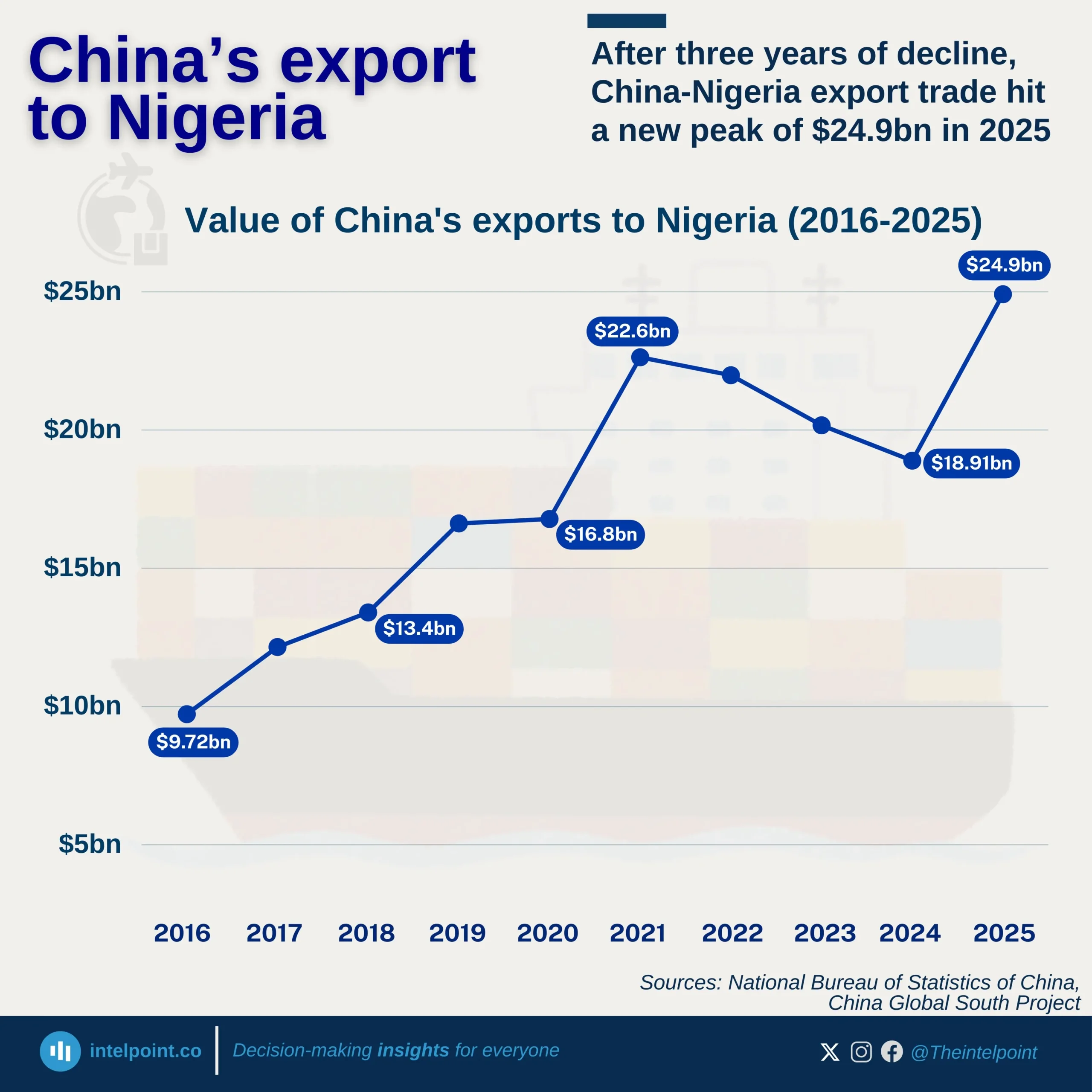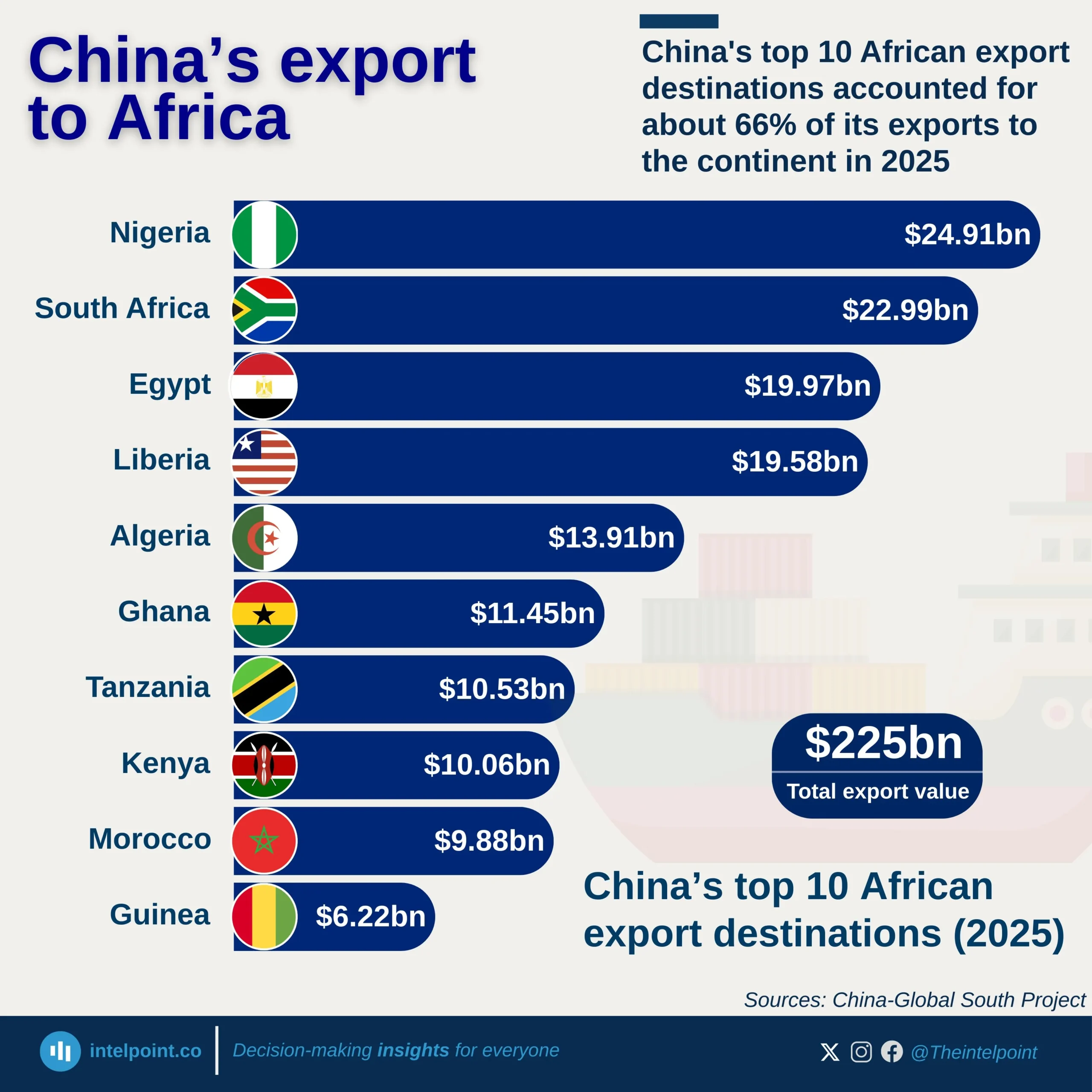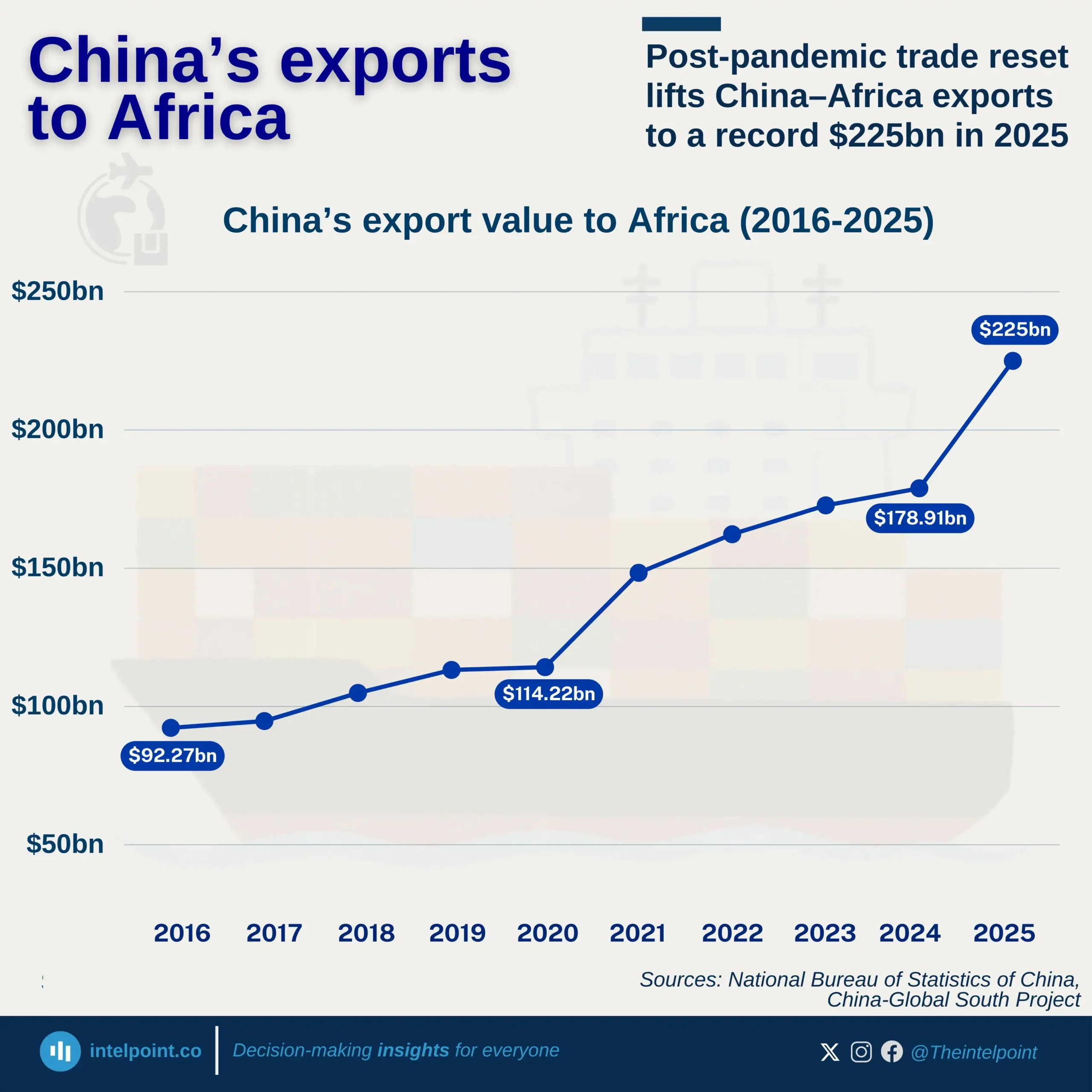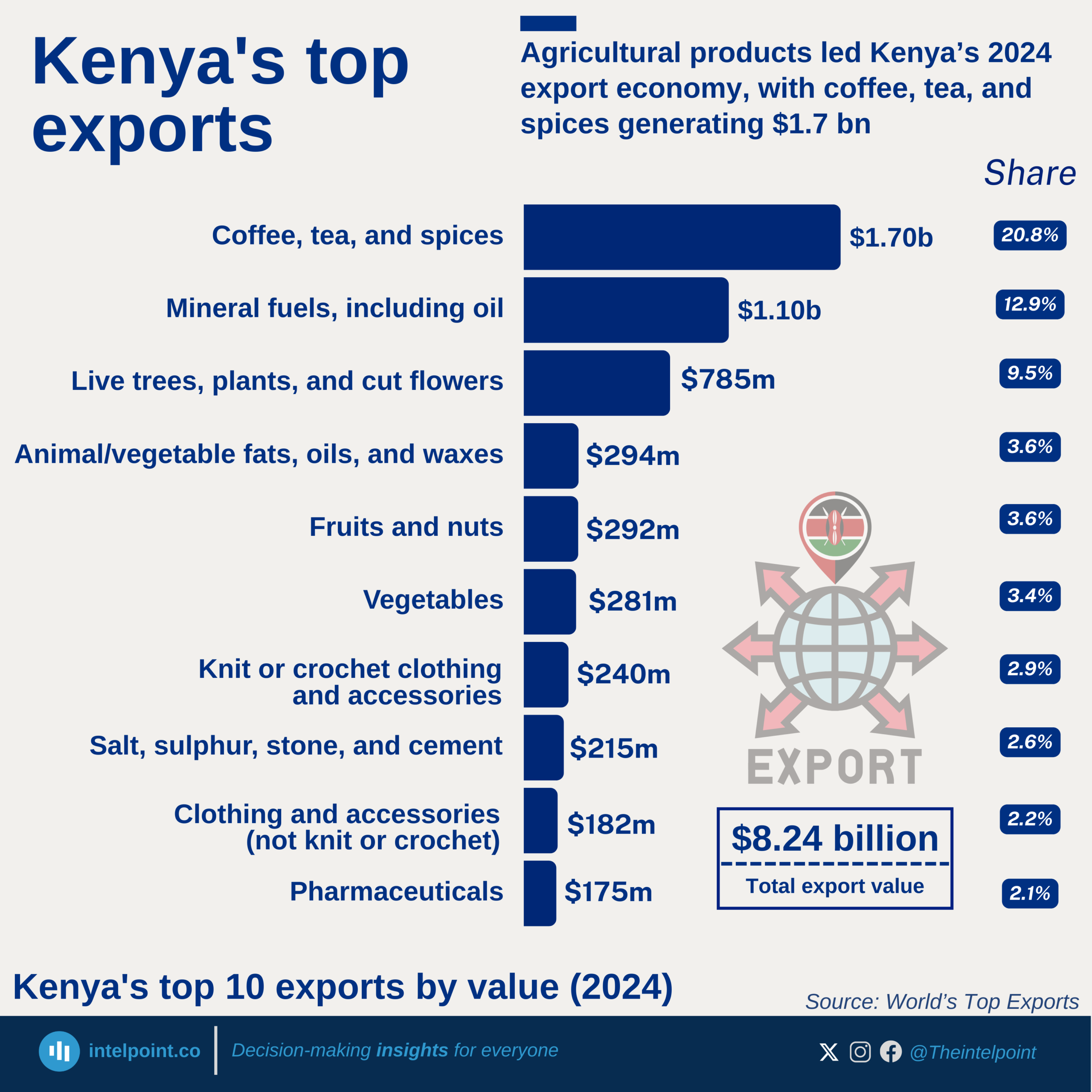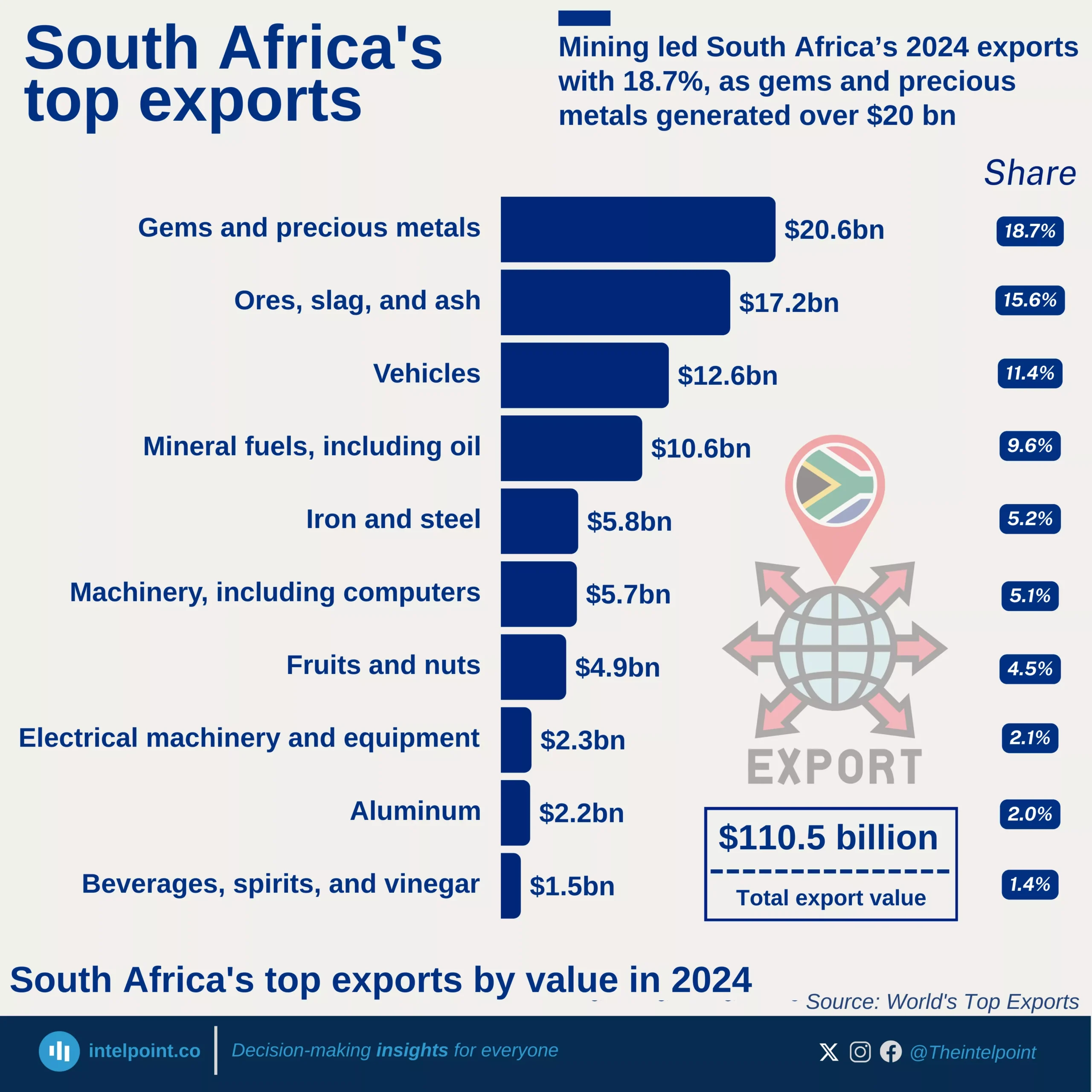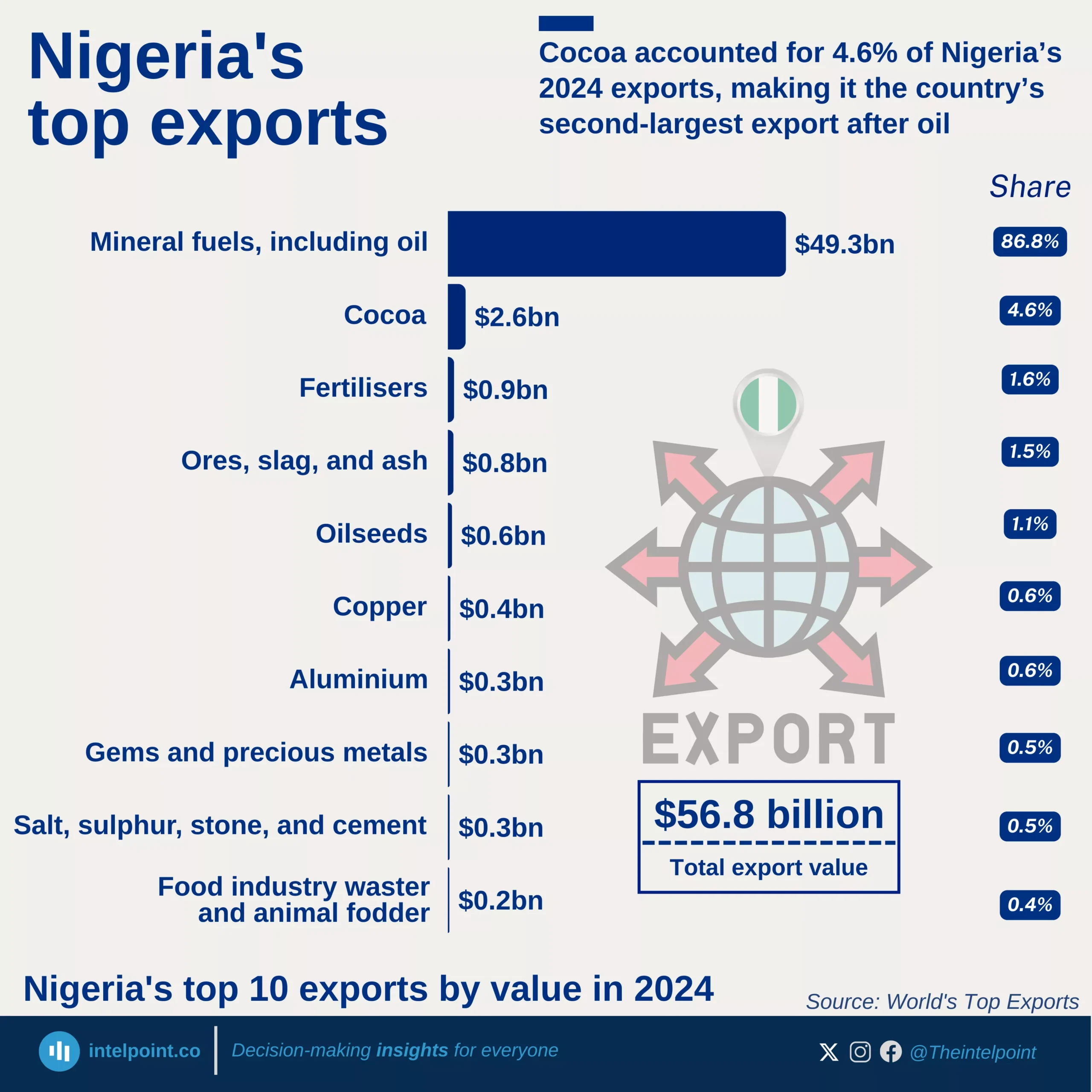Key Takeaways:
In 2024, the US exported $318.7 million in agricultural products to Nigeria. Wheat emerged as the top export at $147.97 million, and accounted for nearly half (46.43%) of all exports.
Processed food preparations and non-beverage ethanol followed at 14.3% and 13.7%, respectively. Soybeans and seafood products were also substantial exports, totalling more than $46 million.
